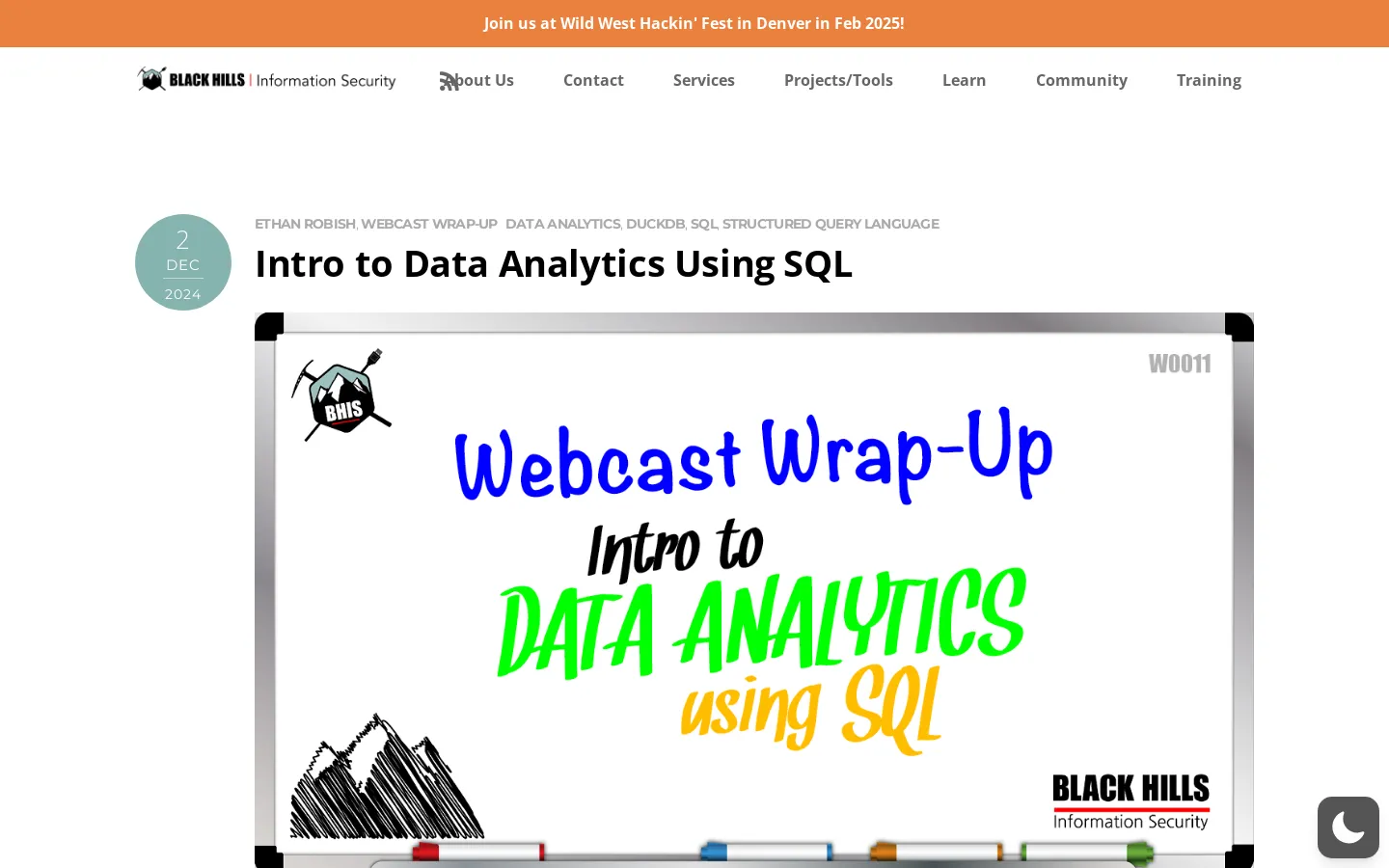
Introduction to Data Analytics Using SQL
/ 4 min read
Quick take - The article discusses the significance of Structured Query Language (SQL) in data analytics, highlighting its role in database interaction, the distinction between transactional and analytical databases, and the advantages of using DuckDB as a user-friendly analytical database for effective data exploration and decision-making.
Fast Facts
-
SQL Fundamentals: Structured Query Language (SQL) is essential for managing and manipulating relational databases, enabling effective data exploration and analysis for professionals across various fields.
-
Database Types: Understanding the distinction between transactional databases (for real-time operations) and analytical databases (optimized for complex queries) is crucial for selecting appropriate tools for data projects.
-
DuckDB: This emerging analytical database is user-friendly and efficient, allowing users to execute SQL queries easily, making it suitable for both beginners and experienced data analysts.
-
Data Cleaning Importance: Prioritizing data cleaning before analysis is vital to avoid errors and ensure accurate insights, enhancing the overall integrity of data-driven findings.
-
Practical Skills Development: The tutorial emphasizes mastering SQL basics, exploring database types, and utilizing advanced SQL features to empower users in making informed, data-driven decisions.
Harnessing the Power of Data Analytics with SQL
In an era where data drives decision-making, mastering the tools to explore and manipulate this data is crucial for organizations. At the heart of these efforts is Structured Query Language (SQL), a versatile tool that enables seamless interaction with databases. This article delves into SQL’s role in data analytics, the types of databases used, and highlights DuckDB, a rising star in the analytical database landscape.
The Role of SQL in Data Analytics
SQL, or Structured Query Language, is the standardized programming language used to manage and manipulate relational databases. Its widespread applicability across various database systems makes it indispensable for data analysts, scientists, and business professionals. By leveraging SQL, users can unlock their data’s potential for reporting, analysis, and informed decision-making.
Types of Databases: Transactional vs. Analytical
Databases are generally categorized into two types: transactional and analytical. Transactional databases are designed for real-time operations, focusing on processing transactions efficiently. In contrast, analytical databases are optimized for querying large datasets and performing complex calculations, making them ideal for business intelligence and data analysis tasks. Understanding these distinctions is crucial for selecting appropriate tools and methodologies for specific projects.
DuckDB: An Emerging Analytical Database
Among the various analytical databases available today, DuckDB stands out due to its simplicity and efficiency. Known for its ease of installation and use, DuckDB allows users to execute SQL queries effortlessly. Its architecture supports fast query execution, enabling efficient analysis of extensive datasets. This makes it an attractive choice for both seasoned data professionals and newcomers to data analytics.
Practical Applications of SQL
To illustrate SQL’s capabilities in data exploration and analysis, consider practical examples such as retrieving specific records from a database, aggregating data to generate summaries, and joining multiple tables to synthesize information. These techniques not only demonstrate SQL’s functionality but also underscore its importance in deriving insights from data.
Mastering SQL: A Critical Asset
The implications of mastering SQL and understanding database types are significant. As organizations increasingly rely on data analytics to drive strategic decisions, proficiency in SQL becomes a critical asset. Tools like DuckDB empower users to harness their data effectively, fostering a culture of data literacy and informed decision-making within organizations.
Actionable Steps for Aspiring Data Analysts
For those looking to enhance their skills in data analytics using SQL, here are some actionable steps:
-
Understand SQL Basics: Familiarize yourself with the fundamentals of SQL, including its syntax and structure. A solid grasp of these basics will enable you to query databases effectively.
-
Choose the Right Database: Different databases serve distinct purposes; understanding the difference between transactional and analytical databases is crucial for aligning your analysis needs with the right tools.
-
Use DuckDB for Simplicity: For a straightforward approach to analytics, DuckDB is recommended due to its ease of use and installation.
-
Format SQL Queries for Readability: Enhance readability by incorporating whitespace and using uppercase for SQL keywords.
By following these strategies, readers can empower themselves with the knowledge necessary to master data analytics using SQL. This proactive approach will help navigate the complexities of data analysis more effectively, leading to more reliable outcomes in their projects.



